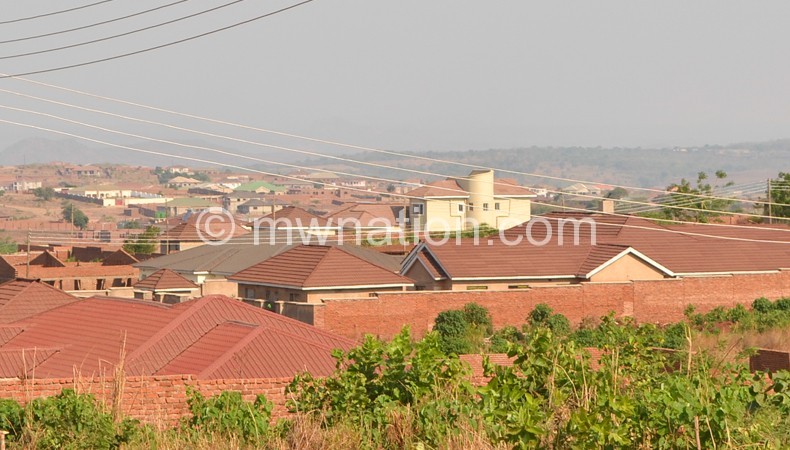Defaulters owe Lilongwe City K8bn
Lilongwe City Council (LCC) property owners who have not paid city rates for the past three years and owe the council K8 billion [$16m], risk losing their property early next year because it will be auctioned, Business Review has learnt.
LCC chief executive officer Richard Hara said on Wednesday despite several reminders in the press, the figure that the council is owed still stands at about K8 billion in unpaid city rates, making them fail to achieve most of their planned development activities.

The council is currently in the process of publishing defaulters who have not paid rates for the past three years and they may have their property seized if they fail to pay during the grace period offered by the council.
Said Hara: “Many people have had the perception that it was not important to pay rates maybe because of the absence of councilors and the end result has been that we are being owed huge sums of money.”
The city’s director of finance Jeremiah Sibande said the figure was arrived at after conducting an evaluation exercise in 2011.
“We were supposed to be conducting evaluation exercise, every five years, but due to financial constraints we have not been able to do so.
We spent about K400 million (about $800 000) to do the evaluation exercise in 2011 and we are still paying the valuers up to now.
“This job was supposed to be done by the Ministry of Lands, but they do not have resources,” he said.
Sibande said the council has been advertising in the press asking residents to pay their rates, but the response has not been good.
“We have over 55 000 clients and we cannot just take them head on at once. This is why we advertise in the papers so that they get the message instantly. Even in the instances where we have used our legal team we still have not managed to get all the dues owed to us because the figures are huge,” said Sibande.
He said two months ago, the council advertised in the local press that those who do not pay by November 30 will have their names published and after a grace period of three weeks, their property will be sold.
“We are very serious this time around and we hope some people will learn a lesson after we dispose of property belonging to defaulters,” said Sibande.
Currently, about 20 clients have been taken to the commercial court as one way of forcing them to pay their dues.
“To show our seriousness, we pay about K150 000 (about $300) per client to the court because we want to make sure that they pay. We recover the cost from the client, but this process is also difficult on our part because our legal affairs department is understaffed and we do not have enough money.”
But Consumers Association of Malawi (Cama) executive director John Kapito asked the council to exercise caution before they dispose of property belonging to city rate defaulters.
“The councils should engage the public in discussions before they start whipping anybody to pay rates. In the first place, people were not paying rates because there were no councillors, the councils were not forthcoming with proper information and service delivery was very poor.
“If the councils were delivering quality service, many would have been compelled to pay,” he said. Kapito also accused councils of laxity and failure to enforce its own by-laws leading to residents not paying rates.





